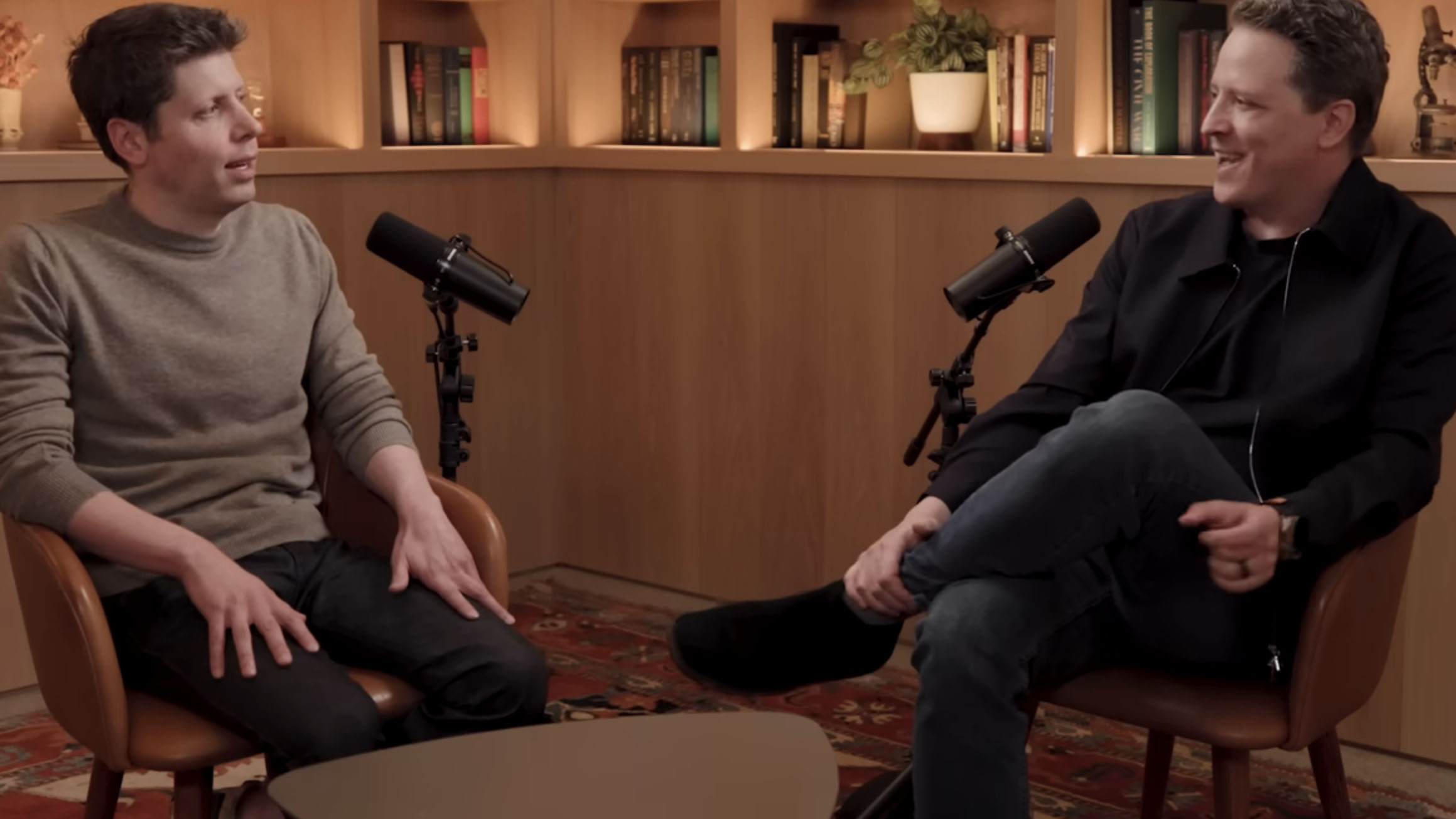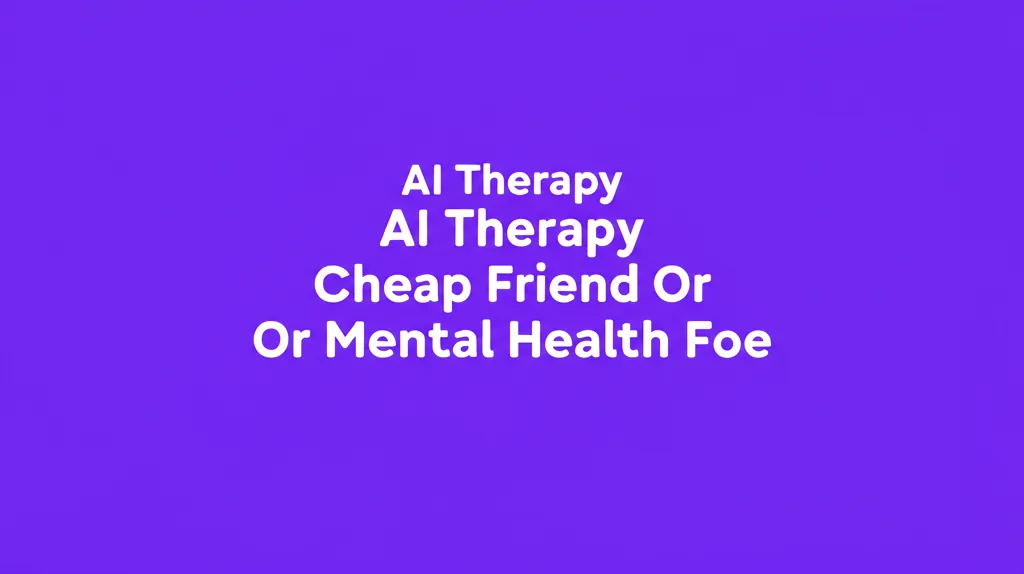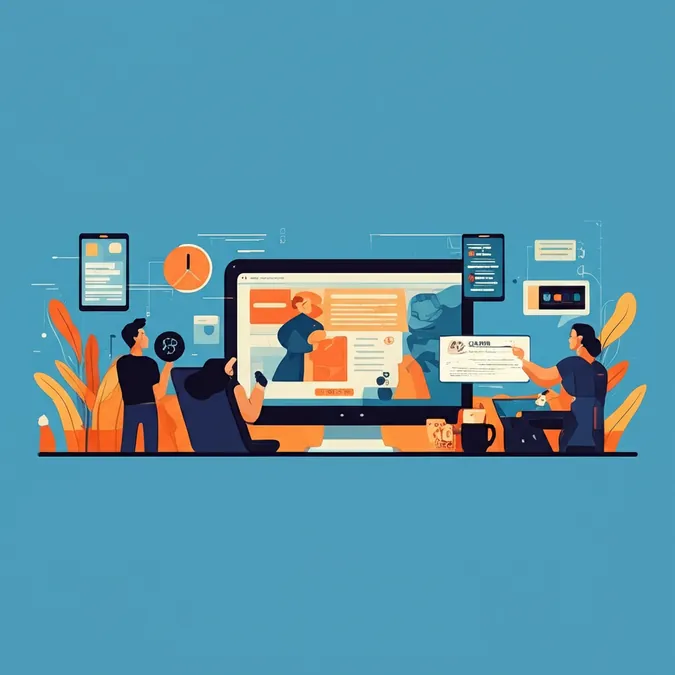Developer Offer
Try ImaginePro API with 50 Free Credits
Build and ship AI-powered visuals with Midjourney, Flux, and more — free credits refresh every month.
Sam Altmans AI Parenting Sparks Concerns
 (Image credit: OpenAI)
(Image credit: OpenAI)
Sam Altman recently featured in the debut episode of OpenAI’s new podcast, simply titled the OpenAI Podcast. This episode is currently available on Spotify, Apple Podcasts, and YouTube.
Hosted by Andrew Mayne, the first episode saw OpenAI CEO Sam Altman discussing the future of AI, touching on topics like GPT-5, AGI, Project Stargate, innovative research workflows, and the intriguing subject of AI-powered parenting.
The podcast episode is titled "Sam Altman on AGI, GPT-5, and what’s next — the OpenAI Podcast Ep. 1".
 You can watch it on YouTube.
You can watch it on YouTube.
While Altman's perspectives on AGI are always noteworthy, it was his counsel on AI-assisted parenting that particularly stood out.
Altman on AI Powered Parenting
One might question if Altman’s PR team was on a break. When asked a seemingly straightforward question, “You’ve recently become a new parent, how is ChatGPT helping you with that?”, Altman's response veered into a concerning vision of a future where children, raised with AI, might struggle with human communication, preferring their connections with ChatGPT.
“My kids will never be smarter than AI,” Altman stated matter-of-factly. “But also they will grow up vastly more capable than we were when we grew up. They will be able to do things that we cannot imagine and they’ll be really good at using AI. And obviously, I think about that a lot, but I think much more about what they will have that we didn’t…. I don’t think my kids will ever be bothered by the fact that they’re not smarter than AI. “
This initially sounds promising. However, later in the discussion, he added: “Again, I suspect this is not all going to be good, there will be problems and people will develop these problematic, or somewhat problematic, parasocial relationships.“
For those unfamiliar, parasocial relationships occur when individuals form one-sided attachments to media figures or celebrities, feeling as though they know them personally despite no actual interaction. Think of feeling a bond with George Clooney from his roles in ER or Nespresso ads, despite never having met him.
Mitigating the Downsides Or Passing the Buck
Altman applies this concept to a child's interaction with ChatGPT. Interestingly, he offers no clear solutions for a generation potentially raised more on ChatGPT's Advanced Voice mode than on human interaction. Instead, he views it as a challenge for society at large to address.
“The upsides will be tremendous and society in general is good at figuring out how to mitigate the downsides”, Altman assured listeners.
As someone with a more skeptical view, this sounds like he’s absolving OpenAI of responsibility for issues its technology might create. Any difficulties faced by a generation of children raised interacting with ChatGPT are, it seems, not OpenAI's direct concern.
Earlier in the podcast, when the host mentioned a parent using ChatGPT’s Advanced Voice Mode to discuss Thomas the Tank Engine with their child—because the parent was tired of the repetitive conversation—Altman simply nodded, remarking, “Kids love Voice Mode in ChatGPT”.
AI for Kids The Practical Concerns
Indeed, they might, Sam. But is it advisable to allow a child unsupervised access to ChatGPT’s Advanced Voice Mode? As a parent myself (though of older children now), the idea of young children being given what appears to be unsupervised access to ChatGPT is unsettling.
AI tools come with warnings for valid reasons. They can make errors, offer poor advice, and "hallucinate" incorrect information. Furthermore, OpenAI’s own guidelines state that “ChatGPT is not meant for children under 13.” It’s hard to imagine many children over 13 are still deeply engaged with Thomas the Tank Engine.
I have no issue with using ChatGPT with my children, but they were both over 13 when it became available. If I were using it with younger children, I would always ensure they were supervised.
While I don't intend to suggest Altman is a neglectful parent and I acknowledge his passion for AI, perhaps parenting advice is best left to those with more expertise in that specific field for the time being.
Compare Plans & Pricing
Find the plan that matches your workload and unlock full access to ImaginePro.
| Plan | Price | Highlights |
|---|---|---|
| Standard | $8 / month |
|
| Premium | $20 / month |
|
Need custom terms? Talk to us to tailor credits, rate limits, or deployment options.
View All Pricing Details

